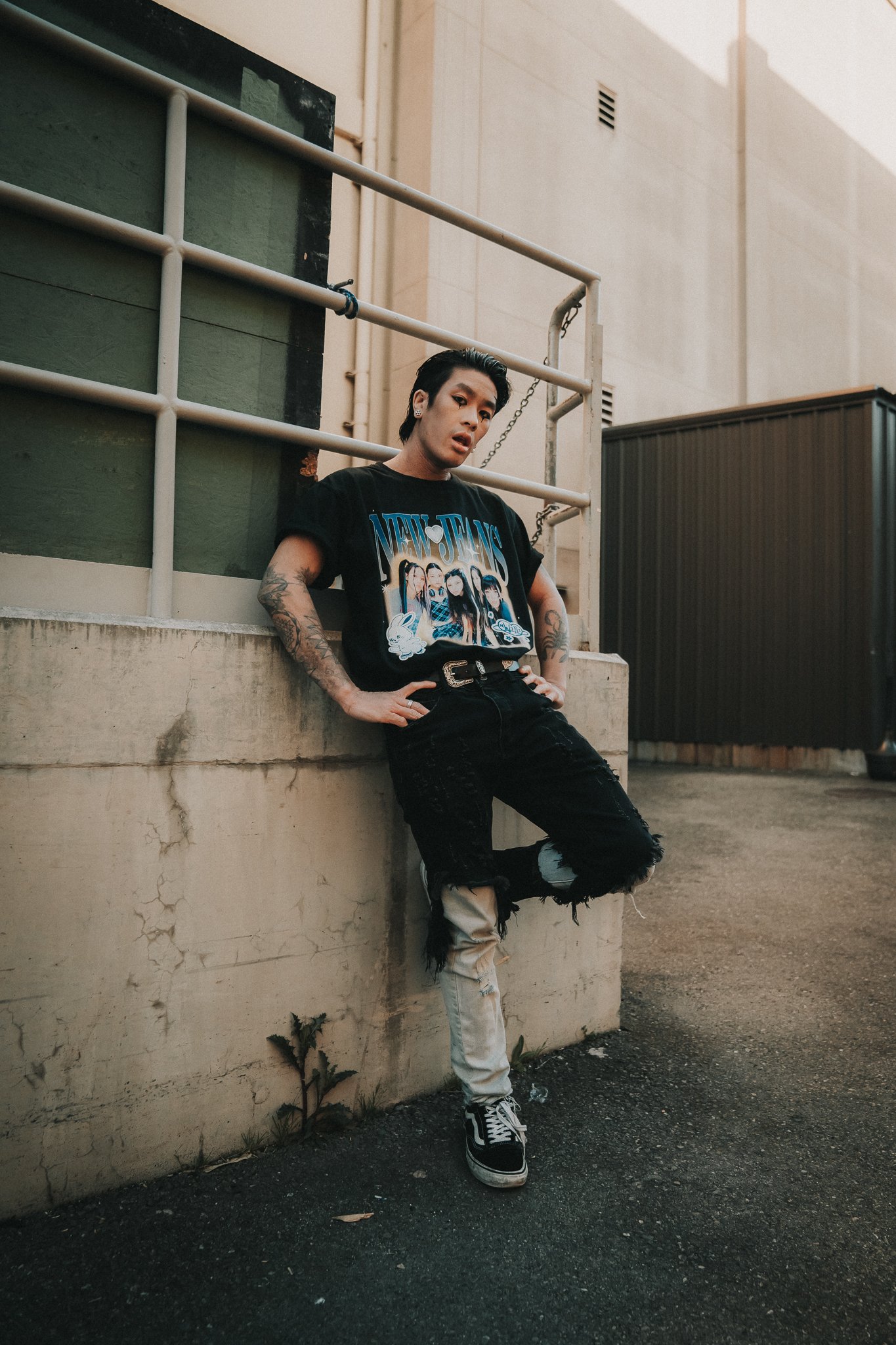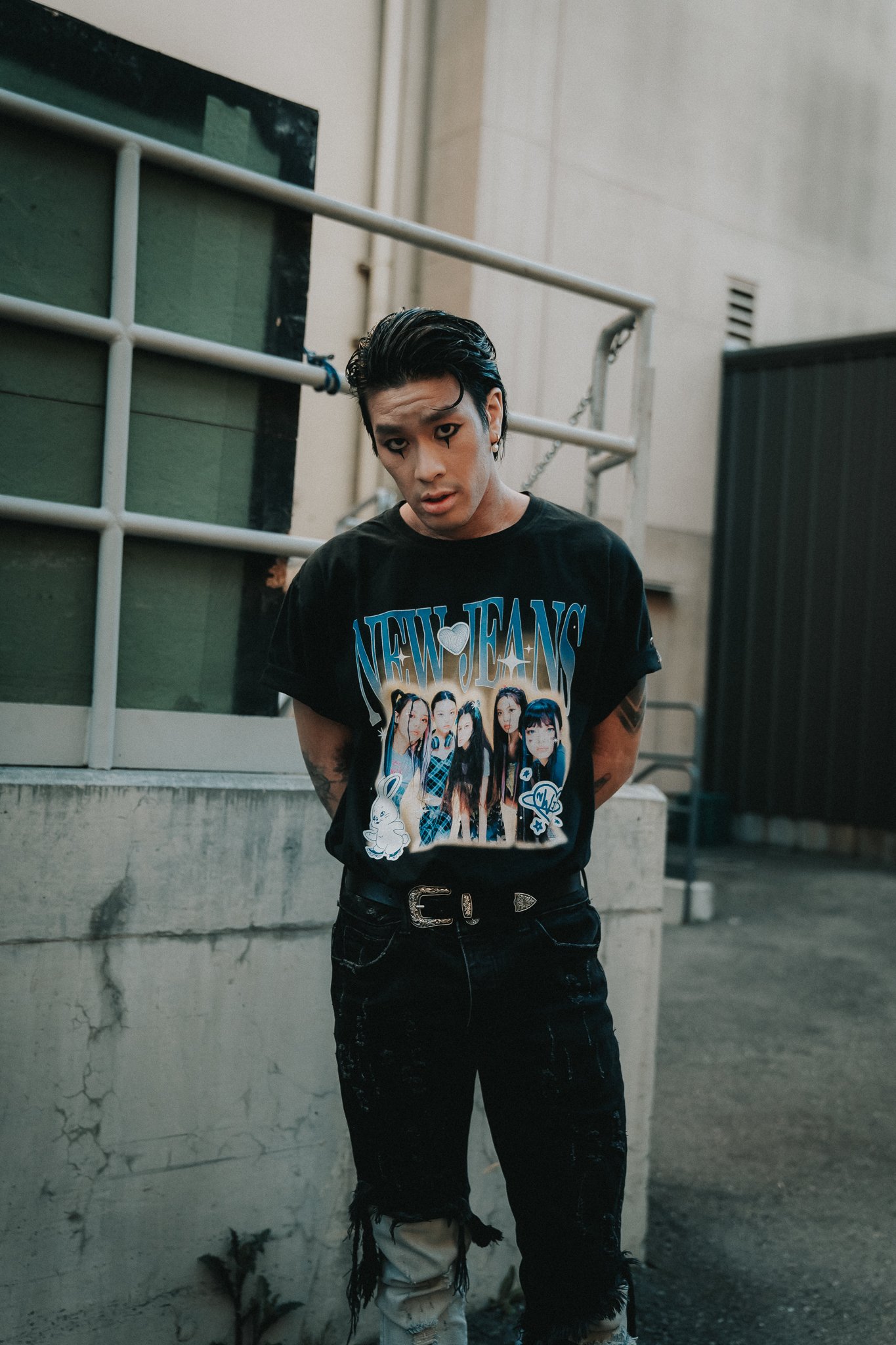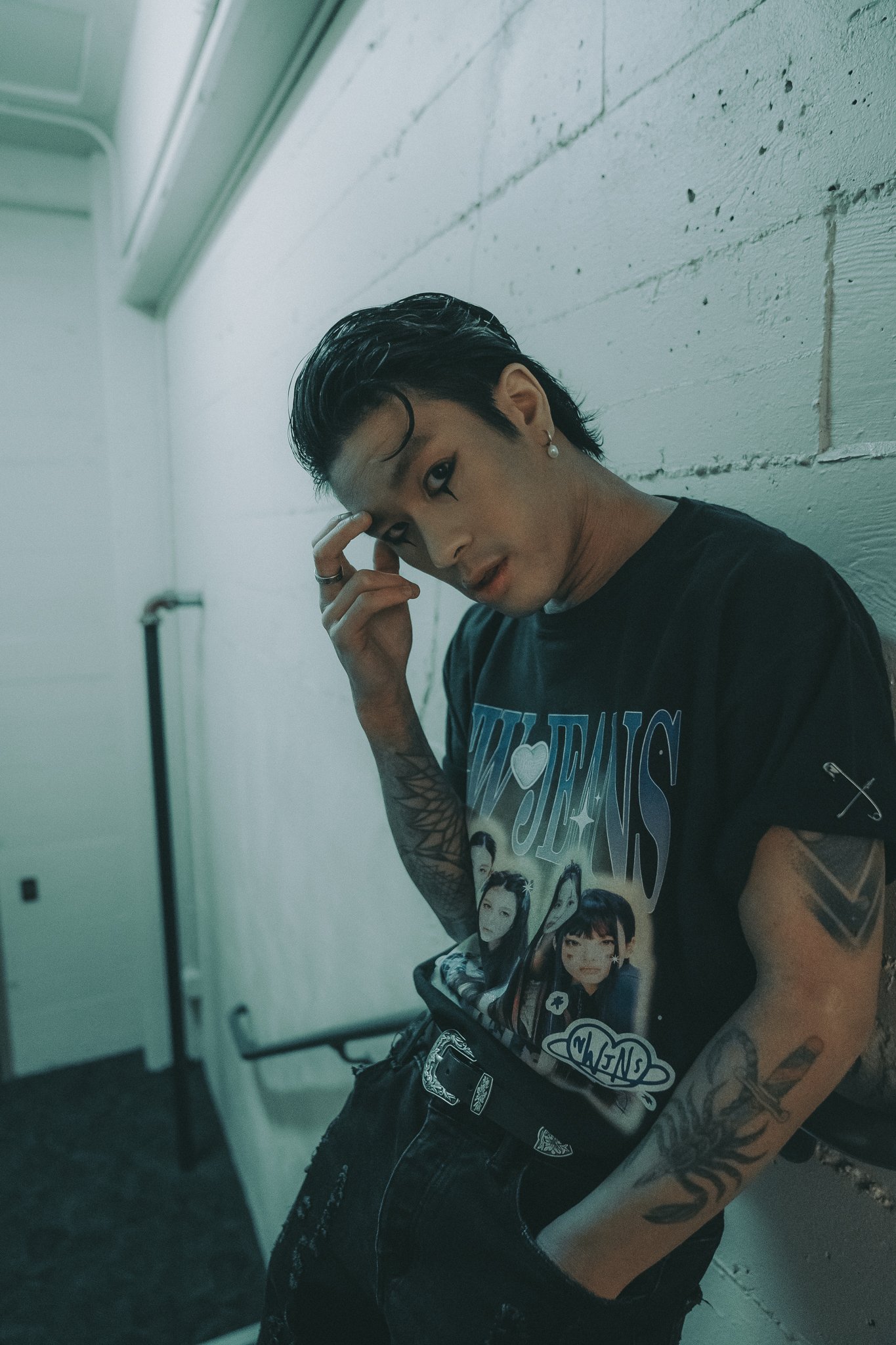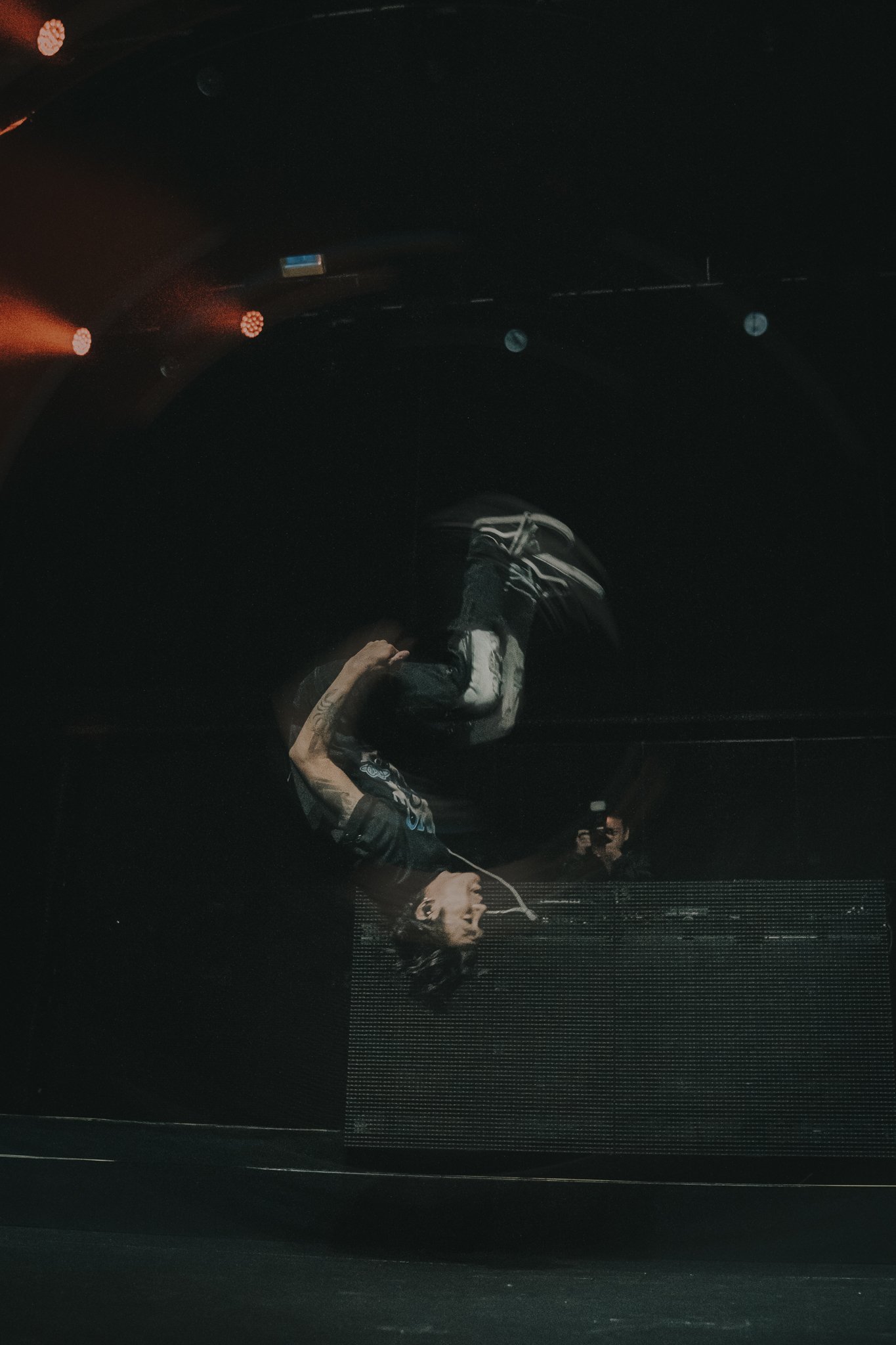Bobo.Xx Is The First Asian American Rockstar
The transgressive artist created his own path through music and photography. “I wanted to break through the stereotype, and show a different side of Asian Americans,” he says in this exclusive interview.
Bobo.Xx is one of the most dynamic, boundary pushing artists in music. “I wanted to break through the stereotype, and show a different side of Asian Americans,” he says in this exclusive interview.
Isné Bobo Nüyent has made a career out of shattering glass ceilings.
He began at 23 when he dropped out of community college and started to mess around with photography. Bobo was new to Los Angeles, fresh out of the Bay Area, California and eager to find work. “I was doing martial arts at the time and this special form of martial arts called tricking. It’s like break dancing, acrobatics and martial arts all combined,” he told me recently from his home. “So we had this crazy team of degenerates. We were all the people who did martial arts and broke apart from it.”
While tricking, Bobo met Isiah Flores, a mentor who encouraged the college dropout to try film. Bobo was trying to figure out his next move when he met Flores, and his guidance proved to be astute.
“You don’t need art school,” Flores told Bobo. “Just follow me for two years. Come on set and I think you’ll learn everything you need to learn.”
Bobo learned as a photographer that if he wanted to succeed, he had to break all the rules. Flores had a way of shooting that worked for him, and there were technical crafts Bobo had to learn. But in the end, it was his decision on how to shoot and what sort of story he wanted his camera to tell.
“I just realized I have to find my own way,” he said. “As long as you get results, that's all that matters.”
This advice has guided the past seven years of Bobo’s career. His concert photography is hands-down the best in the game. He’s shot for legendary acts such as Jonas Brothers, Epik High, Eric Nam, dumbfoundead, Jaden Smith, Xxxtentacion, following them on tour and producing vibrant work that captures the manic energy of their shows. But music is where Bobo is really beginning to shine.
In March, Bobo, who goes by the stage name Bobo.Xx, released “PAIN”, a collaboration with Epik High’s leader Tablo. “PAIN” fuses hip-hop and punk music into a degenerate track that sounds like it was ripped straight from 2005. The lyrics are brutal and arresting: “I gotta feel pain to make me feel alive,” Bobo shouts in the chorus.
The song is about how pain molds us and motivates us as humans. “Like anyone, I have shit days but I feel the full spectrum of the human frame,” he said and cited a quote that stuck with him as he was writing the song: “We’re not human beings having spiritual experiences. We’re spiritual beings who have human experiences.”
“That flipped my perspective,” he reflected. “I’m here to be a fucking human that feels everything. This is a beautiful life – so let’s live it.”
Bobo’s confidence developed over time, formed by a need to push himself.
“I often think of myself on my deathbed looking back at my life,” he said before telling me about a thought that crosses his mind every morning. “What will be my biggest regret? And it’s always, I should have gone harder for that. I should have tried harder.”
He wonders why he cares about other people’s opinions. “They’re not living my life,” he said dismissively. But it’s the fear of regret that keeps him moving. “I have a lot of moments I regret for not going for something,” he said, “and that drives me.”
But pain is etched into Bobo’s ancestral memory. Pain is what caused his parents to flee a war-torn Vietnam, where an estimated 968,000 to 3 million Vietnamese were killed, and make a new life in America.
“They escaped the war and started a whole new life in a whole new country so I could be the best version of myself,” he said. “It would be an absolute disrespect if I’m not the best version of myself and be happy for the sacrifices they made.”
Bobo wasn’t interested in being like others when he was a kid, comparing his personality to the dogged technicality of tricking. “You’re essentially going for a trick over and over again, eating shit, until you land and that high of working so hard before finally getting something is unreal,” he said.
Bobo ate shit a lot growing up in the Bay Area. “There wasn’t anyone like me. Asian Americans weren’t really cool yet. I was around all of these different types of people and I’d always have to prove myself,” he reflected. People expected Bobo to be the “stereotypical” Asian: smart and quiet; un-opinionated; easily digestible. But Bobo had a lot of fight in him to not fit that mold.
“I wanted to break through that stereotype, and show a different side of Asian Americans,” he said.
Family members didn’t understand Bobo. “I was the family fuck-up for years,” he told me, and as his style changed, people worried that he wouldn’t be taken seriously. But Bobo wasn’t interested in fitting in: He got tattoos and piercings. He buffed up. He would never look clean-cut or like someone who works a 9-5 office job (“Fuck that,” he bristled).
When he got to Los Angeles and started hustling for work, Bobo found that the quality that made him succeed was his agility. He’d try anything once; he never said he couldn’t do anything. He’d figure it out.
After working with Flores for two years, Bobo met dumbfoundead, a legendary rapper from Los Angeles’ K-Town neighborhood who invited him to photograph his tour. Bobo had little experience to guide him – but he did have persistence.
His work ethic helped him succeed. “I didn’t know what the fuck I was doing. But I’d be making these videos and photos,” he said. “No one told me how long it took to make a video and photos. So I assumed I gotta pump it out every fucking night.”
While the team would go out to party after a show, Bobo would stay behind in his hotel room “cranking out” new photos and videos for Instagram. He was one of the first photographers to incorporate the 60 second Instagram videos into tour promotions, and his work largely changed how we view tours on social media.
“It became a model for how the rest of my career would go on that tour. I wasn’t a photographer or videographer at all. I was pretty dogshit,” he said. But dumbfoundead spent time with Bobo, critiquing his shots and telling him how to photograph a moment that would look electric on film. “dumbfoundead really taught me a lot about how to shoot musicians,” he remembered.
Opportunities flooded in once he got back from the tour. He was quickly brought on by Nick Jonas’ team to work as a personal photographer. That experience, too, gave Bobo another unique glimpse into fame and how to develop a rapport with someone. “I built relationships with artists and tried to showcase the best versions of themselves,” he said.
Bobo would spend time with each artist, learning about their vulnerabilities and the image they wanted to portray to fans.” That,” he said, “is when I really started to push myself. “
There were moments, Bobo said in retrospect, where he could have gone home. “But there was a certain amount of luck in the air and a need to prove myself,” he explained. “I don’t think I’m a super talented person, but I do have a lot of tenacity.”
And he gets off on proving people wrong. If you think Bobo can’t do something, he’s going to work ten times harder to prove he can do it fucking well.
“I fed into the rage of, ‘No, fuck that shit,” he said.
Bobo.Xx on the set of “LOVE ME”
Epik High’s All Time High tour was the third Epik High tour Bobo photographed. In the years since he first began working with the group, Bobo developed a close relationship with Tablo, DJ Tukutz, and Mithra Jin. But he was completely shocked when Tablo told him he would collaborate on “PAIN”.
“When me and my producer Will (Leong The Professional) were making that track, we had Tablo in mind for it,” he said. “I grew up listening to his music when I had all of my pain and trauma, not knowing how to feel my emotions.”
After finishing the song, Bobo and his producer sent “PAIN” to Tablo. Bobo didn’t expect much. But before the tour began, Tablo called Bobo one day out of the blue and told him he wanted to jump on the track. Bobo was speechless. He recalled, “I just sat back in my room and was like, ‘What the fuck just happened?”
But Tablo didn’t just give Bobo a feature, he championed the artist, too. One night on the tour bus, Tablo asked Bobo if he was ready to go onstage and perform. “Why don’t you open for us in Houston?” Tablo asked Bobo. “You ready?”
Bobo didn’t know if he was ready, but he wasn’t about to back down. So, three days later Bobo was on stage performing for over 1,500 people – his first time in front of a crowd that large. He performed again in San Francisco for 3,000 people. His parents came, which he tells me was “the proudest moment of my life”. By that point he was getting the hang of things.
Bobo.Xx opening for Epik High; CJ May
Onstage, Bobo crushed it. “I don’t know how these things keep happening to me, man,” he said and shook his head. “It seems like I’m going through this and breaking boundaries on my own, but my community sees what I see. The future kids need this.”
Bobo spends a lot of time these days looking at what Asian Americans are being pushed by the media. And, just like when he was a child, he doesn’t see anyone who looks like him. That is why performing, being visible as an artist, is so important to Bobo.
“There’s no one that represents me and I had such a problem with that. There’s just these people that I can’t relate to. I’m not one of those crazy smart Asians. I didn’t grow up rich.” He began to think, “Who’s representing me?”
Bobo would go to AAPI networking events in LA and hear polite speeches about inclusivity. “But at the same time, even Asian Hollywood, if you don’t have that stereotypical thing, they’re not pushing you to the forefront,” he said, then shouted passionately, “Fuck all that!”
Instead, Bobo hopes to be an inspiration to Asian Americans who don’t fit the mold; to the kids who are messy; to the Asian boys who fight hard and talk back. More than anything, Bobo wants to make it okay to be whoever you want to be – regardless of what society tells you.
above photos: Taylor Nguyen
I told him that his decisions as an artist feel fearless. His work is transgressive and boundary pushing. Listen to “PAIN” or “No More Talking”, another excellent single, and you’ll hear a singer shouting at you to be your own fucking hero. But Bobo is vulnerable about his fears. “I wouldn't call myself fearless,” he said. “Because I am scared. But I think that’s the best part because I am damn near shitting my pants at every major opportunity. But there’s no bravery without fear so you just gotta fucking do it.”
Bobo knows where he could end up if he gives up: back at a retail counter or cleaning pools. He’s seen enough people fall out of the industry, too. As an artist, he’s here to motivate and inspire. And his spirit has always been too wild and untamed to fit into a mold. That’s what makes “PAIN” so poignant: It speaks to the fight we have daily to experience the full range of human emotions.
Ever since his childhood, Bobo has always stood up for himself. “People were expecting me to always back down when they’d pick on me because I’m Asian and skinny, but I learned to fight back whether it’s through charisma or physically,” he said. He’s always in a state of fight. “There’s no flight. There’s no running away from this shit.”
Before we got off the call, Bobo wanted to show me a whiteboard he keeps in his room. A while ago, he scribbled an inspiring quote on it that motivates him daily: “There is no passion to be found in playing small and settling for a life that is less than the one you’re capable of living.” Fear drives Bobo, but so does the motivation to take a risk; to be the rockstar no other Asian American kid has seen before.
“I put my heart out,” he told me in what could easily sum up his whole life, “and just fucking did it.”
Bobo.xx just released his new single LOVE ME, available now on all streaming services. You can watch the music video below.








